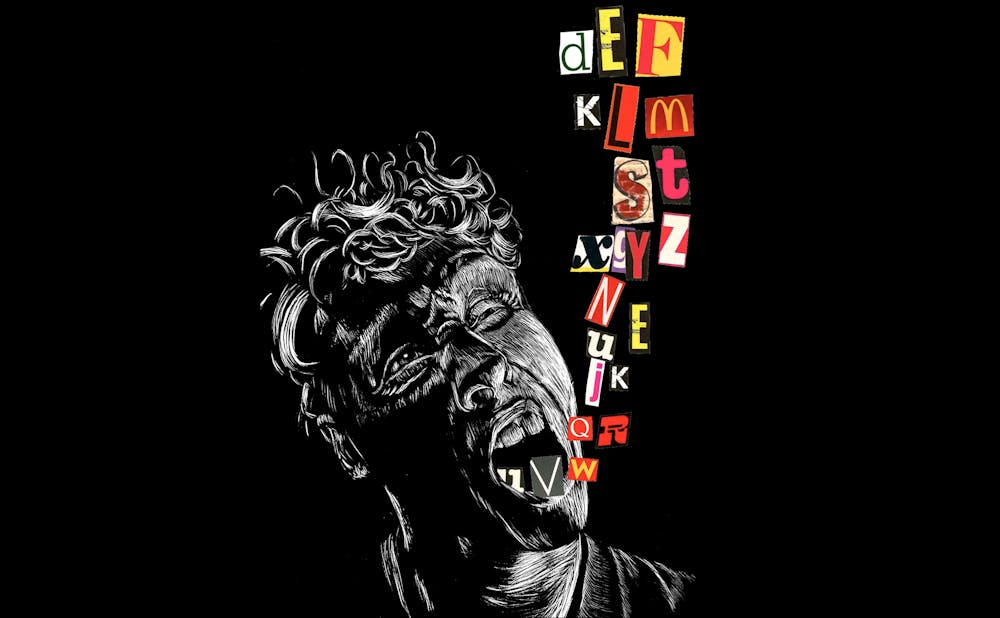If you attended the recent Bari Weiss discussion on free speech, it may seem that the question of free speech is ubiquitous at our University. Indeed, not only the question of free speech but also its celebration is broached broadly across Grounds — several updates posted by the University suggest that the idea that free speech on Grounds is prospering is old news. However, digging into survey details reveals claims that free speech is wholly alive and thriving at our University to be more like false news. Though the Foundation for Individual Rights and Expression placed the University first in a recent national free speech ranking, much of the data suggests a far more unfree environment than a number one placing indicates. It is an environment where many students are uncomfortable sharing their own opinions, and where others are too comfortable silencing those with whom they disagree.
The rankings by FIRE began in 2020 as a tool for high-school students and parents to assess the strength of the free speech environment at prospective universities. FIRE asks students questions that are divided thematically. Seven components are dedicated to student perception of free speech at their university, and seven other components are dedicated to assessing administrator, student and faculty behaviors surrounding free expression. In this, a broad analysis of free speech metrics is used to determine overall rankings.
On the FIRE website page, concerns about the tolerance of diverse opinions at the University are immediately presented, something which threatens the educative fabric of our University. The first two statistics listed indicate that 78 percent of students feel it is at least rarely acceptable to shout down a speaker on Grounds, and 34 percent believe the use of violence is also acceptable at least rarely.
These two statistics display a higher willingness to silence other voices than eight of the other nine universities ranked in the top ten for freest speech, delegitimizing the University’s ranking. When different opinions are silenced, the learning of everyone in the community is impacted in a way which harms our mutual, educational learning and segues us into echo chambers occupied only by our own political worldview.
Beyond indicating a predilection to tolerate silencing speakers, the FIRE statistics have also proven that a culture of students silencing themselves exists at our University — 47 percent of students stated that they self-censored at least once or twice a month. This may seem minor, but, in fact, puts our University 112th nationwide in terms of percent of the student body that self-censors. Such high rates of self-censorship are a danger to the progress of learning from all students as it prevents us from hearing the views of those around us. Our University is designed for and advertised as a place of intellectual diversity and free speech — and such high rates of self-censorship undermine the notion that a variety of ideas are tolerated in our community. The problem, however, doesn’t stop at self-censorship. FIRE’s statistics also reveal significant opposition to the platforming of guests who hold disagreeable views on hot-button issues, such as the provision of gender-affirming care to minors and abortion.
Taken together, self-censorship and opposition to guest speakers, constitute great threats to free speech and are deeply harmful to open expression at our University. Those who seek to prevent speakers of different opinions from coming to our University prevent students from accessing opposing views and in doing so legitimize the creation of echo chambers that polarize student groups. Consequently, this culture of fear around voicing opposing opinions leads to self-censorship to avoid cultural reprisal. This in turn normalizes the proliferation of these echo chambers by preventing open access to other opinions.
The FIRE statistics indicate that the University is already home to self-censorship and intolerance of controversial speech. Of course, the University administration has a responsibility to counter this and actively promote free expression by every group, something they have fallen short of before. However, as agents of our own education and the progenitors of much of this culture, we must work to reinforce and communicate the importance of living in a free speech environment. A first-place ranking means little for the many who feel there is no place for their voice — and as students, we cannot let the ranking induce complacency where reflection and reform are needed.
Wylie Brunman is a senior associate opinion editor who writes about politics for The Cavalier Daily. He can be reached at opinion@cavalierdaily.com.
The opinions expressed in this column are not necessarily those of The Cavalier Daily. Columns represent the views of the author alone.







